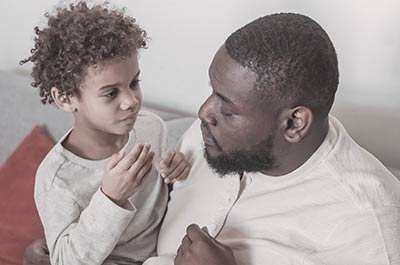If you’re like most parents, you want your child to succeed in life. But what does “success” mean? For many people, it means being able to think and act globally. That’s because the world is changing faster than ever before, and businesses and organizations that can’t keep up are at a disadvantage. So, how do you raise your child to be globally-minded? It starts with giving them opportunities to learn about other cultures and ways of thinking.
Here are ten tips to get started.
Travel with Them as Often as Possible.

One of the best ways to raise a globally-minded child is to take them on frequent trips abroad. There’s a scientific reason for this: travel improves your mental power 1, which helps children and young adults learn faster and more effectively. It also exposes them to new perspectives that challenge assumptions they may have had about people from other cultures.
Visiting locales that are far away can profoundly impact children, providing them with an appreciation for people who may appear drastically different from themselves. This is especially true if your child visits these places before they turn 12 years old.
If you can’t afford to travel frequently, one alternative is taking your kids on virtual tours of other countries. Many websites have interactive programs that teach children about different cultures while they’re still at home.
Choosing a Global Education.
Before your child starts kindergarten, it’s essential to give some thought to what kind of education they’ll receive. If your child is fortunate enough to attend a public school, you can choose between traditional education and “global education.”
Global education is designed to teach children about their world, helping them understand that different people have vastly different cultures. Your child may take classes like geography and history as part of a global education program, among others.
If you’re not sure whether your public school offers international education or not, it’s okay to ask! Some schools may not explicitly call their curriculum “global education,” but that doesn’t necessarily mean they aren’t offering it.
You can also consider enrolling your child in a private school that offers global education programs, which tend to be more rigorous and comprehensive than public school options.
Teach the Values You Want Your Child to Embrace.
As you go about your day-to-day life, talk to your kids about the values you want them to embrace. If you’re unsure where to start, consider sharing some stories from other cultures with them.
This can be anything from a short folk tale told by indigenous people in another country to an anecdote passed down by relatives who immigrated to America. These stories can be simple yet effective tools that your child can use to understand human values. This is especially true if you can share these stories in the native languages of the people who created them.
It’s important to remember that values are diverse and learned some cultures value different things than others, leading children down different life paths.
To that end, it’s important to emphasize the values and principles you want your child to embrace. Not only will this help them grow into a merciful and empathetic adult, but it will also help them understand why people from other cultures make the choices they make.
Watch Movies from Different Cultures and Talk About them!

There are many movies made in various countries that can teach children valuable lessons about different cultures. If you don’t speak the country language where these films were made, no problem! There are subtitles to help your child understand what’s being said while also teaching them how people who live in other parts of the globe communicate.
If your kids like history, invest in a few films that take place during historical periods and watch them together. Even if you disagree with their conclusions, the movie can help children understand why we commemorate certain events while forgetting others.
Encourage your child to learn a second language.
Children need to learn a second language because it can help them build empathy. The more languages they know, the more likely they understand that people from other countries have different values and belief systems than their own.
If you speak more than one language, ensure your kids know what you’re saying! Speaking to children in another language can help them become familiar with certain words and concepts without letting on that you’re doing so.
It also increases their chances of learning a second language as they grow up, which is a valuable skill to have in today’s global world. If your child doesn’t seem interested in learning another language, don’t push them! The goal here isn’t to turn children into perfect bilinguals but rather to help them open up to the world outside of America.
Make Sure Your Kids Can Relate to People from Other Cultures.
If your children have never met a person from another culture before, introduce them to someone whose background differs from theirs. If you don’t know anyone who fits that description just yet, consider arranging a play date with a child who immigrated to the United States alongside their family.
This will help them appreciate what other people have gone through to get to America, and it could also help them understand their own background more in the process.
For children to grow up being tolerant of people from other cultures, they must relate to them on a personal level. Try having your kids watch a series of skits or short advertisements from various countries. The goal here is to get them thinking about how people in other parts of the world live and how they can help them out when necessary. You don’t need to spend hours watching these videos with your kids. A few minutes here and there will suffice, so long as you’re able to bring up the topics they cover in conversation afterward.
The idea is that children should take away an understanding of how different cultures work, thus making them less likely to discriminate against people who are different from themselves.
Read Books that Are Set in Other Countries.

In the same way that movies can spark interest in other languages, books can do much of the same. Even if your kids read these books in English, they’ll be exposed to new words and concepts which will help broaden their perspective on life outside of America.
The trick here is to find books discussing the cultural norms people follow in other parts of the world. Just because many people are against hunting whales doesn’t mean your kids can’t learn about this practice in a book.
By doing so, children will be able to put themselves in the shoes of somebody who lives far away from them, giving them a more well-rounded perspective on what it’s like to grow up elsewhere. If they enjoyed a specific book, you could always find more like it.
Watch What Your Kids Watch!
While this list aims to help children understand different cultures without pushing them too hard, parents must keep an eye on what their kids are watching as well. If cartoons show characters from other countries as villains or bad guys, a child may internalize the message that people from different parts of the world are bad news.
Before you allow your children to watch something, do some research and figure out whether or not it’s portraying certain groups in a negative light.
If so, find something else for your kids to enjoy that isn’t as biased. You’ll be helping your children gain a better understanding of people from other cultures.
Encourage Your Child to Try New Foods.
If a child has never tried a certain food before, encourage them to give it a shot. You can even offer to buy it for them if that’s easier! By showing children the tasty dishes people from other cultures cook up, they’ll be more willing to try new things themselves.
In some cases, you might even want to take your kids to a restaurant that serves food from the country you’re trying to familiarize them with.
Kids can learn a lot by eating and talking about what they experienced during their meals. If your children show an interest in learning more, try and find some books on the topic of food from other countries. It’ll help them get used to eating foods they aren’t used to, and by extension, they’ll be more open-minded when it comes to the foods people eat outside of America.
Share Stories of Your Own Travels with Them.

Finally, if you’ve ever traveled to another country yourself, share your stories with your children. This will open their eyes to what it’s like to live in other parts of the world, and it’ll also give them some perspective on how different life is outside of America.
If your child can see that there are plenty of good people out there, they’ll be less likely to discriminate against them in the future. If you never got the chance to travel when you were younger, take them on vacation this year.
It’ll open their minds to what it’s like in other places and will give them something interesting to talk about when they attend school the next day.
Conclusion.
Establishing an understanding of foreign cultures early on is essential to making the future a better place. In today’s increasingly connected world, it’s important to remind kids that people from other parts of the world are just as good as they are.
Your child can develop a more open-minded perspective about different cultures and races by following these steps. And who knows? Maybe someday, they’ll be able to pay it forward to the next generation!
Get started today with these tips from my blog post. I hope you found the information helpful!

Discover the dynamic world through the eyes of Joanna Perez: a celebrated Cognitive Behavioral Therapy Practitioner and an ardent blogger. Not just a writer, Joanna is also an explorer, partner, and a proud mother. Her expertise goes beyond penning thoughts on parenting, health, and lifestyle; she’s also a certified Women Empowerment Life Coach. With training in Life Mastery, Health, Happiness, and Success, she’s equipped to guide you through life’s complexities. Her dedication to education shines as she’s dived deep into the realms of Neuroscience for Parents and completed the Skilled Helper Training Course.
Reviewed By: Anna West and Brenda Tillman
Edited By: Lenny Terra
Fact Checked By: Marcella Raskin
Photos Taken or Curated By: Matthew Mansour